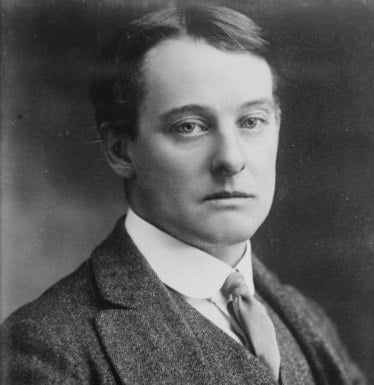In Summer
There were the black pine trees,
And the sullen hills
Frowning; there were trills
Of birds, and the sweet hot sun,
And little rills
Of water, everyone
Singing and prattling; there were bees
Honey-laden, tuneful, a song
Far-off, and a timid air
That sighed and kissed my hair,
My hair that the hot sun loves.
The day was very fair,
There was wooing of doves,
And the shadows were not yet long.
And I lay on the soft green grass,
And the smell of the earth was sweet,
And I dipped my feet
In the little stream;
And was cool as a flower is cool in the heat,
And the day lay still in a dream,
And the hours forgot to pass.
And you came, my love, so stealthily
That I saw you not
Till I felt that your arms were hot
Round my neck, and my lips were wet
With your lips, I had forgot
How sweet you were. And lo! the sun has set,
And the pale moon came up silently.
Thuringewald, 1892
This poem is in the public domain. Published in Poem-a-Day on June 29, 2024, by the Academy of American Poets.
“In Summer” appears in The Collected Poems of Lord Alfred Douglas (Martin Secker, 1919). In 1991, English Literature in Transition, 1880–1920 published an article by David B. Eakin of the University of Maryland, titled “Poems: Lord Alfred Douglas.” Eakin claims, “[Lord Alfred] Douglas’s copious, if at times extremely biased and unreliable, contributions to Wildean biographical materials are generally far better known to the literary student of the 1890s than are his poems. That his poetry has not fared well is due in part to the fact that his stormy relationship with Wilde (even after Wilde’s death, if we consider the accusations and charges levelled [sic] at Wilde in the numerous autobiographies that appeared regularly during the four decades that Douglas survived Wilde) overshadowed his own rather meagre [sic] output of poems. And when one rereads the best of Douglas’s poems, one realizes again just how much influence Wilde had on Douglas. Certainly, the more famous of his poems—‘Two Loves,’ ‘The Dead Poet,’ ‘In Praise of Shame’—are either directly about Wilde or closely associated with Wilde (one wonders how famous the last line of ‘Two Loves’—‘I am the love that dare not speak its name’—would be had it not been quoted at Wilde’s trial and had Wilde’s defense of the love not been so eloquent).”

